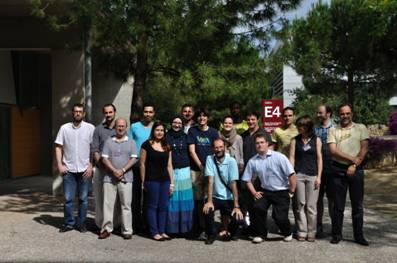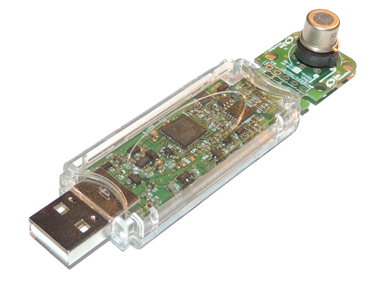Editorial
Happy New Year 2013! This year ISOCS will be running a major society event. For the first time in the ISOEN Series of Symposia, the 15th International Symposium on Olfaction and Electronic Nose will be held in Asia. This is a direct consequence of the large increase of activities related to artificial olfaction, and chemical sensing in general, in Asia. The volume and quality of the work being done in this region of the world is shifting the centre from traditional western countries to Asia. This is a unique opportunity to see the latest developments in device and systems technologies in this part of the world. Korea was selected in close competiton with India to organize this special edition of ISOEN. Daegu, in the south-eastern part of the Korea peninsula is the chosen location to run ISOEN, 2-5 July 2013. Daegu, the birthplace of SAMSUMG is a medium size city (2.5 million) with continental climate. ISOEN will be run in EXCO, the Daegu Exhibiton and Convention Center (illustration)
As usual, ISOEN2013, will be covering the topics that make our society unique: From Biological Olfaction, to emerging sensing materials and technologies, sensor arrays and data analysis. A major point of the conference will be application of machine olfation to food, health, safety and security but also energy efficiency. Finally, not only odour sensing but also olfactory displays will be covered by the symposium. More details about the conference will follow in the section about the 15th ISOEN.
In addition to ISOEN, ISOCS will be running the usual series of short courses focused on trending topics Next event is the Winter Short Course on “Biosensors and Biomimetics: Inspired by Nature”, organized by Marina Cole from the University of Warwick and run in the Austrian Alps (Kühtai, 15th to 20th March 2013).
An additional activity hosted by ISOCS in collaboration with the LCAOS (A Nanoscale Artificial Nose to Detect Lung Cancer) FP7 project funded by EU, is a workshop on Breath Analysis for Lung Cancer Detection. This workshop will be run 13-14 June right after the Breath Analysis Summit 2013, that will be held in Saarbrücken/Wallerfangen 9-12 June 2013.
It is our intention to run additional activities, in the second half of the year, but they are not fully defined at this time of the year. They will be announced in due time in the society webpage.
I would like also to remind members that the society webpage is a powerful source of information regarding latests news on artificial olfaction and related technologies: New conferences, meetings, recently published papers and PhD thesis can be found there.
Members can publish their information (e.g. announcements of events, published papers and thesises, ..) directly using their login.
And finally (in case you have not done it yet!), do not forget to either become a member or renew your society membership for 2013 and continue developing your career, access essential networking opportunities and receive exclusive ISOCS benefits. Learn more about membership on the ISOCS website at Acquire a Membership – ISOCS (olfactionsociety.org)
Join ISOCS today and earn an annual membership until 31st December 2013. There are two categories of membership – full membership and student membership. All members will be able to be a part of this active community and entitled to various benefits. For example, you will be eligible for a discount on all future ISOCS events such as Short Courses, Workshops and the ISOEN symposium series. You will also have access to past proceedings of many of these events.
Subscription Fees for 2013
The fees are €95 for membership and €25 for student membership.
Institutional membership is 295€ and includes up to 3 full members and up to 6 student members from one institution.
The membership fee is yearly and expires at the end of the year unless renewed.
Past ISOCS Events
ISOCS Short Course Summer 2012, 4-7 June 2012 in Tarragona, Spain on “Nanomaterials and Nanotechnologies for Trace Level Detection”.

The Short Course Summer 2012 took place at the Universitat Rovira i Virgili, located in Tarragona, Spain, just at the Mediterranean Seashore. The special focus of the course was on techniques for trace level detection including chemical sensors but also Ion Mobility Spectrometry. There were dedicated sessions the issue of explosive detection.
Lectures were given by: Prof. E. Llobet (URV, Spain), Dr. S. Marco (IBEC-UB, Spain), Prof. J.W. Gardner (U. Warwick, UK), Dr. E. Figueras (CNM, Spain), Dr. Wolfgang Vautz (ISAS, Germany), and Dr. Karine Bonnot (ISL Sanit Louis, France).
There were a total of 15 attendees from Romania, Germany, Turkey, France, Russia and Spain. Apart from the lectures, there was time for informal networking and a guided visit to the Roman remnants.
Upcoming ISOCS Events
15th International Symposium on Olfaction and Electronic Nose, Daegu Korea, 2-5 July 2013
With the rapid development of chemical sensing and strong cooperative supports from government and companies in Korea, this conference is the first in Asia after a long series of succesful conferences in Europe and USA. The organization of ISOEN in Korea is a clear sign of the determination of ISOCS to become a truly global society increasing our presence in all the continents.
The conference features high level plenary and invited speakers:. At this point we have confirmation of:
- Prof. Gabriele V. Ronnett, Dept. of Neuroscience, School of Medicine, Johns Hopkins University, Baltimore, MD, USA
- Prof. Kengo Shimanoe, Dept. of Energy and Materials Science, Faculty of Engineering Science, Kyushu University, Fukuoka, Japan.
Additional highlights for the conference is the special focus symposia:
- Understanding molecular mechanisms underlying odour/taste perception and processing, run by Dr. C. Moon, Dr. J. Koo and Dr. K. Kim (DGIST, Korea)
- Applications of Electronic Noses and Sensor Technology in the food field, run by Dr. Isabella Concina (CNR-IDASC, Brescia, Italy)
- Applications of remote and local gas sensing in mobile robotics and sensor networks – Can we already solve real world tasks?, run by Dr. Marco Trincavello, and Dr. Achim Lilienthal (Orebro University, Sweden).
- Electronic tongues: New transduction schemes and data processing techniques, run by Dr. Manel del Valle (UAB, Spain) and Dr. Andrey Legin (St. Petersburg State Univ. Russia)
- Olfactory cell based sensor for medical applications, run by Prof. Jeong-Ok Lim (Kyungpook National University, Korea)
- Olfactory Sensors on flexible substrates, run by Prof. Krishna Persaud (Manchester University, UK)
- Olfactory interactions and its standardization, run by Dr. Hae-Ryong Lee (ETRI, Korea) and Prof. Jeong-Do Kim (Hoseo Univ, Korea)
- Energy efficiency buildings based on sensor technologies, organized by Dr. Udo Weimar (Tuebingen University, Germany).
It is important to remark that the Abstract Submission deadline is approaching fast: 15 February 2013.
Please bookmark your agenda and send your contributions to this exciting event signaling the first presence of ISOEN in Asia.
Short Course Winter 2013 Biosensors and Biomimetics: Inspired by Nature
Sporthotel, Kühtai, Austria, 15 March-20 March 2013,
Course Directors: Dr. Marina Cole, Prof. Krishna Persaud
One of the first examples of biomimetics is invention of velcro. Swiss engineer George de Mestral was inspired by examining burs plucked from his dog’s coat. With their spikes tipped with tiny hooks they were sticking so firmly to the dog’s fur – inspiring the invention of velcro. His invention found applications in the first artificial heart surgery and on trips into space.
The ISOCS Short Course will explore the area of Biomimetics – the science of adapting designs from nature to solve technological problems. The applications of biomimetic can range from aotomotive research, robotics, material science, biomedical and molecular engineering. During the course we will focus on applications in biosenssing and bioengineering. Special attention will be given to biosensors and their role within biomimetics. We have put together an exciting program which will provide attendees with both theoretical background and practical experience in the areas of biomimetics and biosensors.
The Short Course consists of lectures in the morning and the demonstrations and case studies in the evening during which attendees will be shown some applications of biosensors and biomimetic systems and will be taken through some design examples.
The Short Course is ideal for anyone with an interest in biosensors & biomimetic systems and is new to the field; for example, PhD students, researchers, technologists and industrialists.
The course will feature worldclass lecturers in the proposed topics including (in addition to the school directors) Dr. Jan Mitrovics, Prof. Julian Gardner, Dr. Shannon Olsson. There will be also hands-on sessions organized by Dr. Zoltan Racz (Warwick University). For a detailed program please go to the society webpage ISOCS Short Course Winter 2013 – ISOCS (olfactionsociety.org)
Short Course Breath Analysis 2013
14 June 2013 – Saarbrücken/Wallerfangen, Germany.
Short Course organizer: Dr. Jan Mitrovics.
This short course is organized jointly with the LCAOS Workshop on Lung Cancer Detection with Sensor Arrays and run in conjunction with the Breath Analysis Summit 2013.
The Short Course explores chemical sensors in breath analysis provides and covers knowledge on chemical sensors, data analsis and breath analysis for lung cancer detection as well as established medical practices for lung cancer detection.
The main objective is to give an overview of the available technologies and current research with a focus on practical applicability and real life problems.
The short course is ideal for medical scientists, clinicians and industrialists who want to get a head start on chemical sensors in breath analysis, and for researchers and engineers who want to use their technology in lung cancer breath analysis.
For more information check the society webpage: Short Course Breath Analysis 2013 and LCaos Workshop – ISOCS (olfactionsociety.org)
Instrumentation

JLM Innovation announces a new tool for enose applications with metal oxide sensors

The new MOXstick USB interface is a handy but powerful little measurement tool to quickly build advanced setups.

- Supports many different gas sensors from Figaro, AppliedSensor, UST and other manufacturers.
- Measures sensor and heater resistance simultaneously.
- Complex heater cycles configurable via software.
- Arrays with multiple MOXsticks can be operated synchronously via the software.
Software options include data loggers, LabView® and Matlab® drivers, DLLs for embedding in your software, and advanced software packages with PCA, PCR, PLS and ANN.
The MOXstick is ideal for:
- Gas sensor research
- Electronic nose prototyping
- Education and training
www.jlm-innovation.de/products/moxstick/
